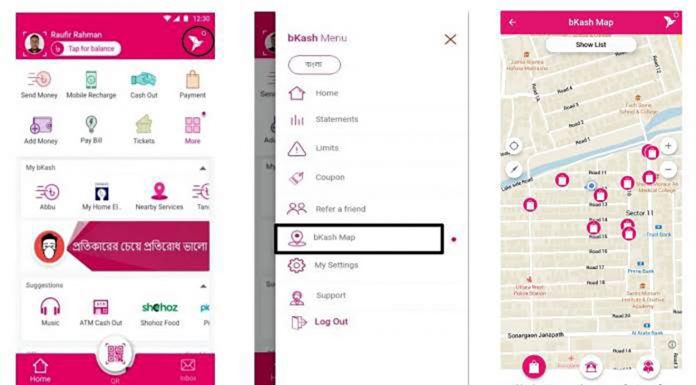Dhaka — The mobile financial services (MFS) are helping bKash's users increase their income. One study found that the country's largest MFS company is playing a significant role in increasing per capita income at the household level.
Helping to reduce the risk in times of trauma or crisis like natural disasters. bKash is also playing a role in education, health, and women's empowerment. The bKash has enhanced the economy of Bangladesh through its innovative services.
The Bangladesh Institute of Development Studies (BIDS) conducted the study on the basis of a nationwide survey. BIDS has already published a research report titled ‘Impact of Mobile Financial Services in Bangladesh – The Case of bKash'.
The main objective of the study was to assess the impact of bKash at the household level.
Field level surveys were conducted in 180 villages of eight administrative divisions of the country for the study.
According to the BIDS report, non-agricultural income at the household level has increased by 15.2% as a result of bKash use. Total per capita income increased by 5.8%.
The study analyzed the impact of household or family bKash users and non-users on their income, expenditure and consumption during various disasters, including natural disasters.
It was found that in the case of households that did not use bKash at the time of the impact, internal remittances decreased by more than 61%. Per capita income fell 17%.
On the other hand, for all the households that used bKash during the shock, their internal remittances increased by 60% and as a result, their per capita income increased by 28%.
At the same time, per capita expenditure has increased by 6.2 %.
bKash in Family Welfare: The BIDS report states that MFS can affect the distribution of family wealth through bKash such as rapid, secure, and efficient money transfers, and therefore has a positive impact on income, expenditure, and other indicators of family welfare.
By providing quick remittances in case of an emergency, bKash is helping to deal with adverse situations.
Family members are able to protect themselves as a means of quick money transactions in times of danger.
Monthly expenditure statistics have been used in research to assess family-level impact. It has been seen that the monthly expenditure of the bKash user family is Tk 3 thousand 126.
The monthly expenditure of another MFS user family is Tk 2,580.
On the other hand, the monthly income of a family who does not use MFS service is Tk 2,887.
This is because non-agricultural incomes are higher and bKash users spend more on non-food products than other groups. The use of bKash has a significant impact on women's ownership of resources.
Women's ownership of wealth has increased by 14 % due to the use of bKash.
At the same time, the participation of women in income-generating activities has increased by 9 percentage points.
Impact on health and education sector: The survey selected 246 transactions from different samples to assess the impact of bKash on education expenditure. Money has been sent to students in other regions through these transactions. Of this, 54 % of transactions have been through bKash.
40 % of transactions are done directly through one person or another.
In the case of education expenditure, it has been observed that bKash households or families spend more on education than other MMS users and households without MMS.
The average annual expenditure on education in a bKash user house is Tk 8,392.
On the other hand, the average annual education expenditure of a household that does not use bKash is Tk 4,102.
The same picture has been seen in the case of health or medical expenses. The bKash users surveyed spent Tk 1.658 per year on food per treatment. On the other hand, families who do not use bKash have spent Tk 1,138.
As a result, bKash has a helpful role to play in considering healthcare spending.
Women's Empowerment: It has been found that women who use bKash are 20% ahead of women who do not use bKash when it comes to ownership of financial assets.
Women users are also ahead in other indicators of women's empowerment.
Women who use the bKash of indexes used in research on freedom of movement are ahead of others. Research has found similar trends in family decision-making.
The diagnostic tests that have been done on jewelry or jewelry ownership have shown that women who use bKash are about 15 % ahead of others. The main reason for staying ahead in these cases is that their participation in income-generating activities is relatively high.
Financial Inclusion: According to the BIDS survey, MFS is ahead of banks, both at the individual and household level, in terms of financial inclusion, with most contributing to development.
In addition, the rate of having MFS accounts is much higher among the poor and women than in banks.
98% of households in Bangladesh have at least one mobile phone, but 38.4% of households have an MFS account. Of these, 24 % of households have accounts with bKash.







